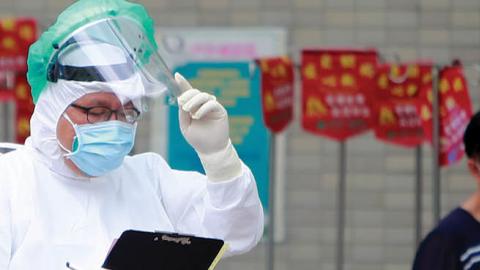On May 31st, the Taiwanese Central Epidemic Command Center, a crisis cell designed to respond to pandemics, reiterated the country’s commitment to purchasing 20 million doses of its domestically developed COVID-19 vaccine. The vaccine has not yet completed clinical trials. But Taiwan is barred from the World Health Organization (WHO), while Beijing’s pressure has prevented Taipei from purchasing Western vaccines like AstraZeneca, Pfizer, or Johnson and Johnson. As of June 4th, Japan delivered 1.24 million doses of its AstraZeneca surplus to Taiwan to accelerate its vaccination program. Taiwan’s President Tsai Ing-wen was understandably grateful.
Particularly in the Western world, the COVID-19 pandemic has been viewed as a transformative event, the effects of which are sufficiently outsized to abrogate traditional politics. Perhaps. Still, fears exist that national and local governments have used the pandemic to expand their authority. Fortunately, public pressure and simple political common-sense have limited egregious excesses. Rather than executing transformative power grabs, national and local governments have been embarrassed as major policymakers flout their own COVID-19 restrictions.
Traditional politics, however, is not only domestic. It is also international. In the international arena, strategic competition – that is, political-military rivalry between actors with distinct interests – is standard, not exceptional. This strategic competition only intensified during COVID-19.
Taiwan’s predicament demonstrates the persistence of strategic rivalry. The island-republic is the CCP’s clear strategic and ideological target. Not only does it thwart the PLA from pressuring directly Japan, the Philippines, and even the US – it also stands as a reminder of the CCP’s incomplete victory in 1949, and of the promise of liberal democratic capitalism. PLA military provocations against Taiwan were especially intense during COVID-19’s first six months. These actions were not simple sabre-rattling, but rather probing efforts to gather tactical and operational intelligence. The PLA would deploy specific strike packages, coordinating air and maritime incursions to discover how Taiwan would deploy its limited supply of advanced fighter aircraft during a major conflict. In October 2020 and May 2021, the PLA also conducted amphibious assault drills simulating an invasion of Taiwan.
Of course, ideally the CCP hopes to achieve its strategic objective, absorbing Taiwan into its new Chinese empire, without invasion, and thereby avoid risking a broader Pacific conflict with the US and its regional allies. But the risk of American, Japanese, Philippine, Australian – and at this point, perhaps Indian, Vietnamese, and even European – counter-escalation remains high. Hence China has limited Taiwan’s involvement in international organisations and tied its economic investments abroad to de-recognition of Taiwan, and subsequent recognition of the PRC. As it stands, only 14 states, and the Holy See, recognise Taiwan, down from 25 in 1990. Taiwan is barred from major international organisations like Interpol and the WHO. It can only participate in UN specialised agencies as an observer, and only then with the CCP’s approval, an approval the CCP has withdrawn since Tsai Ing-wen’s 2016 presidential victory.
Taiwan has maintained a vibrant economy despite the CCP’s external pressure. Moreover, in an ironic twist, Taiwan’s non-participation in the World Health Assembly likely allowed it to respond more effectively to COVID-19. Rather than relying on the CCP’s fabricated reports and falling prey to its obfuscations, Taiwan was forced to depend on its intelligence agencies and domestic epidemiological modelling to guide policy. It halted travel from Wuhan in January 2020 and began screening flights from China shortly after. Weeks before it banned foreign entry, Taiwan integrated public health, immigration, and customs data to track COVID cases, and successfully eliminated community transmission. The island nation never entered full-scale lockdown and maintained its economic productivity. Even more remarkably, the Taiwanese government never conducted the invasive data collection actions that are the backbone of CCP policy and were employed throughout Asia.
However, Taiwan now approaches a political turning-point. Functional travel bans were effective for island-nations like Taiwan, Australia, and New Zealand. By preventing nearly all entry, major outbreaks can be limited, and life can continue normally. But increased vaccine distribution, at least in the Western world, raises the prospect of international travel. All Western-produced vaccines successfully eliminate COVID-19 hospitalisations, and generally prevent symptomatic infection. But it remains unclear whether asymptomatic infection is possible. And asymptomatic carriers can still transmit COVID-19. Thus, even if Taiwan made vaccination a requirement for foreign entry, without an intensive quarantine and continued testing a major outbreak would still be possible. Additionally, because virtually none of the Taiwanese population has been exposed to COVID-19, Taiwan has no “boost” from natural post-infection immunity. It appears that those who contracted milder COVID-19 strains are equally safe from more infectious variants. Taiwan has no such protection. Thus, if Taiwan wishes to permit foreign entrants at any reasonable scale, it must vaccinate its population.
Australia and New Zealand face the same predicament, having pursued similar policies to Taiwan since March 2020. But as members of the WHO – and states recognised as such – they may secure contracts with foreign vaccine producers.
Taiwan lacks this option. It has attempted to reach agreements with foreign providers. This past month, China blocked a deal between Taiwan and the German BioNTech SE, the joint developer and co-producer of the Pfizer vaccine. Other states should note that the Chinese Fosun Pharma is a major stakeholder in BioNTech – Fosun invested $135 million in BioNTech in March 2020 in return for vaccine manufacturing rights in China. The price of Chinese investment not only deliberately deprives people of potentially life-saving medicine: in this case, it deprives the German company of sales. Taiwan may be successful turning to other providers. But a domestic vaccination program is the only model under which Taiwan will be guaranteed vaccines.
Naturally, the CCP has offered to provide vaccine doses to Taiwan, an action that the PRC-leaning opposition to the current Taiwan administration strongly supports. Western coverage has emphasised Taiwan’s binary choice between public health and politics. This implies a manifest absurdity – that public health is in some way de-linked from political, that is, strategic, interest.
The US has a vested interest in countering all Chinese predation, particularly towards Taiwan. And this is an undeniable example of predation. By forcing Taiwan to rely on a domestic vaccine, and thereby guaranteeing that international travel to Taiwan will not resume until early 2022 under optimal circumstances, the CCP tries still harder to isolate the island republic. At best, it is hoped that Taiwan will capitulate under pressure. But even without surrender, this move provides the CCP with a clear strategic advantage. A functionally quarantined Taiwan may be unable to capitalise on the rush of travellers – and investors – that will return to foreign markets as travel resumes. And a poorer Taiwan is a Taiwan less capable of defending itself from eventual Chinese attack.
Thus, the US should assist Taiwan’s vaccination efforts. Encouraging a vaccine deal through a third party, like Japan, would be less efficient, but more politically palatable, than direct transfer. But the US should also support, either overtly or covertly, Taiwanese vaccine development, sharing medical information and supporting clinical trials to bring the vaccine to market as fast as possible. Taiwan’s vibrant democracy and central geographic position in the First Island Chain make it a key bastion of any US strategy in the West Pacific. China will do anything to undermine Taiwan. The US should do everything to support it.
Read in RealClear Policy





















